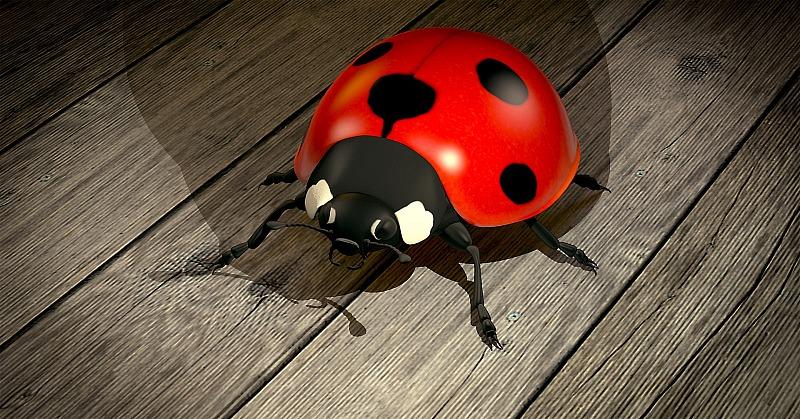A June statistical report places global box office revenue losses at $10 billion for 2020, while demand for streaming services has spiked.
(1) The global pandemic doesn’t just affect how film sets will be run, but the entire pre- and post-production process and the livelihoods of thousands. A global pandemic and the sudden dispersal of the entertainment industry’s workforce has caused a paradigm shift forcing the industry to re-think everything it does.
(2) One sector that has stepped into the global spotlight is animation.
“With film production shut down, we are seeing new and brilliant ways that animation will be used to enhance not just entertainment, but communication between people and companies,” says film producer and CEO Maury Rogow, whose Rip Media Group specializes in story-based live-action and animated video for a client list that includes Ben & Jerry’s, Harvard University, and tech giant Cisco. “And with new innovations, there’s no sign of that slowing down.”
Social distancing is much less a problem for those involved in animation. Animated shows have been able to keep airing with their creators working remotely. CBS’s Tooning Out the News features a motion capture-based process called live animation or real-time animation. Twitter hosted a live-animated promotional Q&A for the Hulu show Solar Opposites, the first of its kind.
(3) Live action shows have also stepped into the animation arena. The Pop TV sitcom, “One Day at a Time,” recently aired a fully animated episode.
(4) NBC’s “The Blacklist,” with their season cut short, produced their season finale as a unique hybrid with 20 minutes of graphic novel-style animation, a project that employed 35 artists working round the clock from their homes.
(5) Rogow points out that COVID-19 and social distancing, and more specifically the vastly expanded remote workforce, is rapidly changing how information and ideas are exchanged.
It is predicted that of the roughly 34 percent of professionals working from home, many will not go back. A survey by research firm Gartner found that 74 percent of organizations plan to shift some employees to remote work permanently. Platforms for remote connection have seen their usage surge exponentially. Google Meet has been adding about 3 million new users per day, while Zoom saw their daily participants expand by 100 million in one month.
(6) “Animators, directors and editors, like us, have been actively producing in their home offices all hours of the day and night, developing engaging ways for brands to get their messages across,” says Rogow. “We’ve been in a global predicament, but, in the parlance of storytelling, the hero—or heroes—are solving the unsolvable.”
Animation is increasingly in the toolkit for businesses of any size to impart information, whether to other businesses (B2B) or to customers (B2C). “Coincidentally, we had been working on a new process to provide small business with high-end, yet affordable, animated videos. We had just rolled it out before the pandemic hit, and it’s been in high demand since. I’m happy that we can help small businesses in this way,” says Rogow.
(7) While the connection between animation and small business may not seem obvious, it lines up with current trends. A 2019 statistical review from Social Media Week reported 81 percent of businesses surveyed were incorporating video in their marketing strategy, while viewers, on average, stated they retained 95 percent of a message when received through video.(8)
Rogow says businesses using animation are quickly becoming the next drivers for marketing communication—and points out that the key to animation video today is rooted in three major steps—those that apply these will triumph over the now-antiquated “talking heads:”
- Tell a great story. People remember a great story more than facts and figures. What matters will always be the story you tell. You need to make sure you’re not rehashing an old and boring checklist or PowerPoint. Be creative and memorable.
- Be relatable. People want to know you understand them and feel their pain. They buy based on emotion. So, make your story aspirational or inspirational. Make your brand stand out by being a part of the solution.
- Don’t be afraid of animation. There is no need for “stick-figure characters or DIY cartoons.” Animators use 3D, motion capture —impressive technology—to create art and stories that resonate with your buying audience.
“It comes down to stories,” says Rogow. “If businesses don’t get their stories out, they will surely fail. People and your customers need to hear from you—with social distancing mandates, they are starving for interaction. Video and animation are great tools for this—look around, we’ve become a more visual society than ever before.”
Rogow warns that just like the remote workforce, those companies finding themselves on the fence about animation in business video might find themselves outdated if they don’t get on the bandwagon. Rogow and his teams have been burning the midnight oil to help small businesses pivot—as he puts it, “our economy depends on them.”
About Rip Media Group
Rip Media Group, founded in 2007, is a trailblazing video marketing company based in Los Angeles, California. Founded by digital pioneer Maury Rogow, Rip Media Group brings a unique combination of storytelling art and ROI strategy to the field of animation and live action video. Maury is a member of the Producers Guild of America, with several feature films to his credit. His unique background in film production led to an epiphany in the intrinsic value of storytelling in marketing, no matter how technical the subject. This led to his work in a high-tech firm and its purchase by Cisco for over $1 Billion. He went on to form Rip Media Group, a collection of award-winning storytellers, technicians, and artists, selected from the Producers Guild, Writers Guild, and Screen Actors Guild. Their Green Light Production Process and other proprietary systems are used to create world-class voiceover, animation, and live action video to grow businesses of any size.



